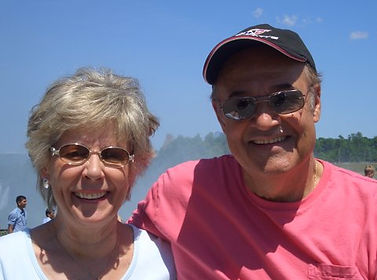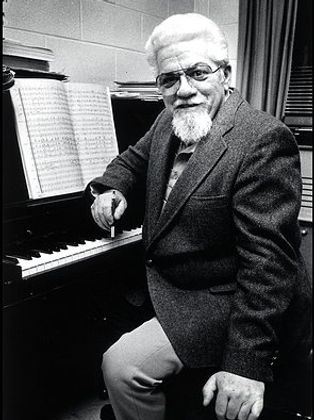
Bios PDF
In Gratitude
Since childhood, I have directed every effort toward becoming a teacher, principally due to the influence of Mr. Melvin Leon Harris, Jr., a teacher and Instrumental Music Director whom I wished to emulate. In the small, still-segregated city where we lived, he adapted and overcame. A superb Musician and Music Educator, he became an astounding rôle model and a community leader, having had streets named for him and many other honors. He passed in 2022 leaving an eternal legacy spanning many generations of Musicians and Music Educators. His influence upon me is a daily experience.
I think his most important lesson for me can be summed up in the following statement.
While performing is an imperative, I consider myself to be “a teacher who plays, rather than a player who teaches.”
In July of 2015, I was accorded the singular honor and privilege to be the Speaker at a ceremony honoring Mr. Harris, including the naming of a portion of US Route 50 in Salisbury, Maryland "Melvin L. Harris, Jr. Way." A great tribute to a great man.



Dr. Badolato and his lovely wife Pat
Dr. Gerald Frank Muller


Dr. Strunk Tribute Concert
The Benjamin T. Rome School of Music
The Catholic University of America
Whether in the classroom, the rehearsal hall, or the private applied studio, I endeavor to teach by example, by inspiration, and by encouragement. The results have often been extraordinary, many students attesting to this.
I ask that my students become pluralistic aestheticians (this term borrowed from Dr. George Thaddeus Jones) in the study and performance of music, and I direct their studies toward the ultimate objective of becoming literate, competent, functional musicians, regardless of specific discipline.
I consider myself to be an amalgam of the great teachers from whom I received my training. Let me tell you about these remarkable musicians and scholars.
Preëminent among these is George Thaddeus Jones, Professor Emeritus of Music Theory and Composition from The Catholic University of America. In the short space of time that I knew him, his influence upon me, and his dissemination of knowledge to me, was profound, an epiphany. Additionally many other teachers who trained me were either disciples, or close colleagues of Dr. Jones, including Dr. Robert Wayne Ricks, Dr. Paul Garvin Taylor, Dr. James Vincent Badolato, Dr. (and Sr.) Cyrilla Patricia Barr, and Dr. Steven Gerhardt Strunk.
Dr. Strunk, who possessed a mind of the first order, guided my research through both Masters and Doctoral studies. He distilled my all-too-often scattered thoughts into as coherent a presentation as possible and, believe me, he had his work cut out for him! I received other invaluable training from him in the heuristics and processes employed in understanding music. As we both shared a passion for Jazz, that made for some very interesting conversations as well.
He was a brilliant man.
I was honored to speak at his Memorial and equally honored to perform in his honor.
Dr. Paul Garvin Taylor was not only my teacher, but a friend and mentor as well. Countless times, when he was literally inundated with his duties as Associate Dean of the School of Music, he put all aside to give of his time and skill. Many times, when I seriously considered chucking the whole thing, he provided guidance and encouragement. He was a “second advisor” for my dissertation, and his suggestions were invaluable. In the classroom, he unveiled many things to all of us, and his nonpareil organizational skills and classroom techniques are those that I strive to emulate.
Dr. Cyrilla Barr made the History of Music become a living entity. In her lectures, she led all of us beyond the surface events of timeline and analogy. In the context of any historical era she wove a constant thread of transcendent style and idea, the “aura of the era,” coupling music with contemporaneous history and philosophy, and binding all with insightful presentations of cogent examples from the literature. Her lectures were powerful experiences. On a prosaic note, she gently quashed my childish jejune presumptions and biases and taught me to love Opera.
Dr. Gerald Frank Muller was my composition teacher as well as my “Boss” at Montgomery College. I learned much from him in lessons, as well as just “hanging around” and stealing his ideas about music, conducting, composing, teaching and so forth. He allowed me many opportunities, far more than I deserved or was prepared for, and yet he never lost faith, and always encouraged me, especially after my inevitable egregious errors (of which there were many). He taught me how to make students give of their best.
Dr. James Vincent Badolato, a former colleague, and for my part, an indispensable mentor (he attempts to deny this!) is a superlative musician, composer, arranger, theorist, and teacher. I constantly badgered him for information...frankly, I coveted his brain...on every subject imaginable: theory, jazz harmony, composing, arranging, everything. He is the master of all these things. The standing joke among those of us who hold him awe is, “he’s forgotten more than we will ever know.”
Dr. Wayne C. Cameron is a colleague from my time at Shepherd University. He is a virtuoso trumpeter and an outstanding and seasoned conductor. Wayne was a doctoral student when I was an undergrad. I spent many hours just “hanging around” absorbing what he had to say. The amount of information thus acquired was exponentially disproportionate to the time I spent with him as well as my ability to absorb it! When we re-connected years later at Shepherd University, we immediately found that we had many things in common musically, artistically, and personally. My true regret is that I never studied privately with Wayne: “if I knew then what I know now...”
I mentioned the late, great Bill Potts (William Orie Potts, 1930-2005). Bill, a renowned figure in the Jazz world, seems to have been everywhere, done everything, known everyone. He was more than a father to me. Very early, he “took me under his wing,” at Montgomery College ,and gave me countless opportunities. Bill was responsible for giving me my first shot in the college classroom and rehearsal hall. More than that, he was a fount of knowledge and wisdom and he taught me how to swing, a process that I’m still learning. When I can play five-voiced swinging solos like Bill, I’ll know I made it!

Dr. Robert Wayne Ricks, Professor Emeritus at CUA, with whom I studied conducting and theory, was instrumental in shaping the way I think about music. He had an uncanny ability (although he denied it!) to point to some event or passage in a score and suddenly, it seemed that new worlds emerged. He as showed me many things this way, often as we met by chance in some hallway or stairwell. His classes were among the most valuable to my development. Much of my classroom technique is derived from him. He was Reader for my Dissertation, a thankless and grueling task, considering my writing and often incomprehensible expressions of ideas. With me, he displayed the patience of Job and the wisdom of Solomon.
I am sad to say that Dr. Ricks passed away in his sleep (2010). All who knew him and those of us privileged to be his students miss him greatly.
I have very few positive memories from my experience at The Peabody Conservatory. This is my own fault. I should never have been admitted to this august institution, quite frankly! I firmly believe that the only reason that Dean Robert Eustis (the only Administrator and Faculty member to show up for Auditions) admitted me was that I drove 150 miles through a raging blizzard in a clapped out 1964 Oldsmobile with bald tires! I was passing Maryland State Troopers on US 50...what an idiot...
Only two individuals were important to me in the final analysis: Morris (Moishe) Cotel, our brilliant and incredible abusive Music Theory professor, and Dr. Richard Higgins, the head of Instrumental Music Education.
This man, this under-appreciated and under-rated man; he had that quiet demeanor that commands, he was an untapped well of vast knowledge and experience, an incredible talent that I only discovered in my final months with him.
At one point, IO was slated to be expelled from the Conservatory for poor performance, poor grades, and some...shall we say...belligerent behaviors which were matters of honor (yes, I'm aware of what you think...)
I know that he interceded upon my behalf behind the scenes, risking his own reputation and relationship with his Colleagues.
At one point, he took me aside in his office, and gave me "The Speech"! In other words, "a damned good talkin' to"!
I never forgot this, and I will always be grateful. He was yet another great man to whom I shall always be indebted...withouitv the means to repay!
As early as I can recall, music of the High Church in the Anglican Tradition touched me deeply. There is a grandeur and a sense of magnificence in the literature that I found to be mysterious and ineffable as a callow youth, and that I now find to be glorious and exultant...or more accurately, a span of the entire range of emotion from incalculable joy to deepest despair and then exultant jubilation.
As a boy, I was exposed to, mentored, and taught this by a remarkable Musician, Choirmaster, and virtuosic Organist, John A.T. Holland. At an all-too-young age, he employed me as a trumpeter for Feast Days (especially the Triduum and Easter) and I served as his page turner (even tho' he had to smack me because I kept getting lost...), flunky, and gofer.
It is astounding to me the manner in which he manipulates the textures and timbral colors of the instrument. His "sound" is uniquely personal and unique in and of itself. Remarkable.
My time beside "The Mighty Wurlitzer" (as he called the massive custom Möller organ that he had raised over $100,000-in 1970 dollars!- from Parisioners, and had installed), was invaluable, as was his mentorship. Later, as a member of the Chancel Choir, I learned the importance of music within the Liturgy.
He's a great friend, and his sense of humor and joie de vivre is an example to us all!
My only regret is that I didn't pay enough attention to everything he tried to hammer into my iron skull!
I ask for your indulgence here. I would rather tell you about these wonderful musicians than employ “felony use of first-person singular.” They are great artists, great teachers, and I owe each of them an incalculable debt.
Mark Andrew Cook, Ph.D.

Dr. Robert Wayne Ricks